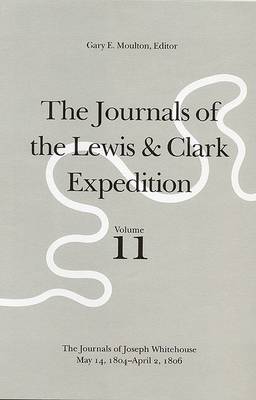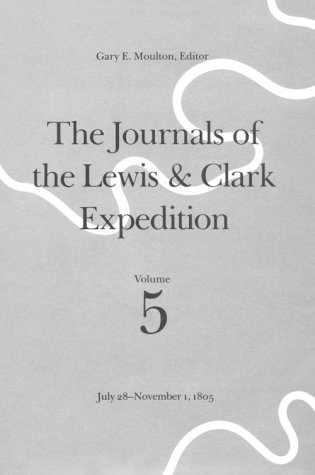Journals of the Lewis and Clark Expedition
2 total works
The Journals of the Lewis and Clark Expedition
by Meriwether Lewis and William Clark
Published 1 January 1987
The University of Nebraska Press editions of "The Journals of the Lewis and Clark Expedition" are widely heralded as a lasting achievement. In all, thirteen volumes are projected, which together will provide a complete record of the expedition. Volume 11 contains the journals of expedition member Joseph Whitehouse. His journals are the only surviving account written by an army private on the expedition, and he is one of the least known of the expedition party. Following the expedition, Whitehouse had a checkered army career, and he disappeared after 1817. His capabilities have been unfairly slighted by previous commentators, despite his narrative skill and evidence that he was a man of a lively and curious mind. His extensive journal entries contribute to our understanding of the epochal journey and of the unusual group of men who undertook one of the defining events in our history. The last part of his journals was not found until 1966; this is the first publication of the complete record of his account. Gary E. Moulton is a professor of history at the University of Nebraska-Lincoln and recipient of the J.
Franklin Jameson Award of the American Historical Association for the editing of these journals.
Franklin Jameson Award of the American Historical Association for the editing of these journals.
What the reviewers said about earlier volumes: 'These journals of exploits and courage in a pristine West have a simplicity and timeliness about them - never failing to capture the imagination of the ordinary reader or to interest the historian, the scientist, or the geographer' - Mary Lee Spence, Montana. 'If the criterion for good editing of an exploratory account is that it should result in narrative that is as gripping as an adventure story, then Moulton's success as editor is unquestioned' - John Logan Allen, "Utah Historical Quarterly". 'Meticulous scholarship marks this landmark revision...Essential to every American history collection' - "Reference and Research".The first four volumes of the new edition of the "Journals of the Lewis and Clark Expedition" have been widely heralded as a lasting achievement in western history studies. This eagerly awaited fifth volume begins on July 28, 1805, more than one year after Meriwether Lewis and William Clark set out on their epic journey.
The expedition now enters upon perhaps the most difficult part of its route, from the Three Forks of the Missouri River in present-day Montana, over the Bitterroot Mountains, and to the Cascades of the Columbia River on today's Washington-Oregon border.The explorers encounter Shoshone, Flathead, Nez Perce, and other Indian tribes, some of whom have never before met white people. Incorporating a wide range of new scholarship dealing with all aspects of the expedition, from Indian languages to plants and animals to the geographical and historical context, this new edition expands and updates the annotation of the last edition, published early in this century. Gary E. Moulton, associate professor of history at the University of Nebraska-Lincoln, is the author of "John Ross: Cherokee Chief" (1978) and editor of "The Papers of Chief John Ross" (1985).
The expedition now enters upon perhaps the most difficult part of its route, from the Three Forks of the Missouri River in present-day Montana, over the Bitterroot Mountains, and to the Cascades of the Columbia River on today's Washington-Oregon border.The explorers encounter Shoshone, Flathead, Nez Perce, and other Indian tribes, some of whom have never before met white people. Incorporating a wide range of new scholarship dealing with all aspects of the expedition, from Indian languages to plants and animals to the geographical and historical context, this new edition expands and updates the annotation of the last edition, published early in this century. Gary E. Moulton, associate professor of history at the University of Nebraska-Lincoln, is the author of "John Ross: Cherokee Chief" (1978) and editor of "The Papers of Chief John Ross" (1985).

